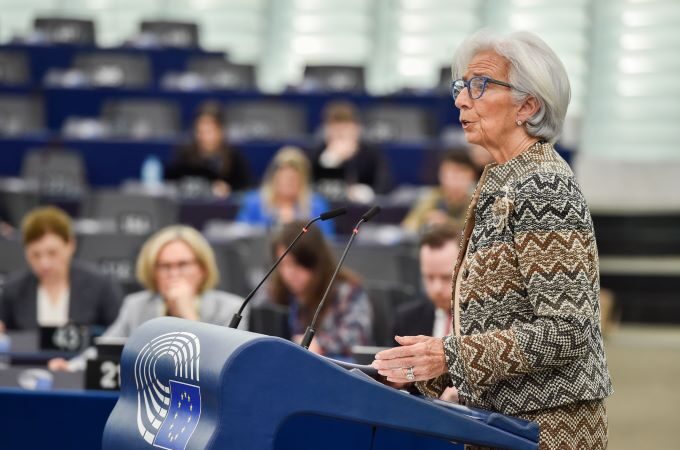
MEPs on Tuesday warned the ECB it risked its credibility if inflation was not quickly brought down while financing costs remaining high, and called for a review of the models it uses.
The recommendations are contained in the yearly report PArliament adopts about the actions of the ECB. The report, spearheaded by Johan Van Overtveldt (ECR, BE), was adopted with 418 votes in favour, 157 against and 42 abstentions. On Monday afternoon, MEPs held a debate with the ECB’s President, Christine Lagarde.
Key recommendations
Members expressed concern about persistently high inflation rates, especially core inflation rates, and their detrimental impact on competitiveness, investments, job creation and consumers’ purchasing power. The ECB risks its credibility if it fails to quickly bring inflation to the target level, while, at the same time, increasing the financing costs for citizens and companies, MEPs warn.
The report fully supports the ECB’s goal of fighting inflation for as long as necessary, while emphasising that monetary policy normalisation can be achieved by a combination of fiscal, monetary and structural policies. It called on the ECB to fundamentally review and improve its models and their role in its policymaking in light of the “subpar performance” of the models in recent years, in order to adjust them to new economic trends and trends in EU and global financial markets.
As the ECB is bound by the EU’s commitments under the Paris Agreement, the ECB is encouraged to continue to assess the extent to which climate change may affect its ability to maintain price stability. At the same time, the report expresses grave concern at recent media reports of political bias within the ECB towards greening of policies. It notes the importance of pluralism for the institutional culture of the ECB and calls on the ECB to investigate and swiftly address any suspicions of ideological bias.
Finally, the adopted text invites the ECB to improve its communication about policy objectives and crisis responses. It called on the ECB to bring its internal whistleblowing framework into line with the EU Whistleblower Directive.





